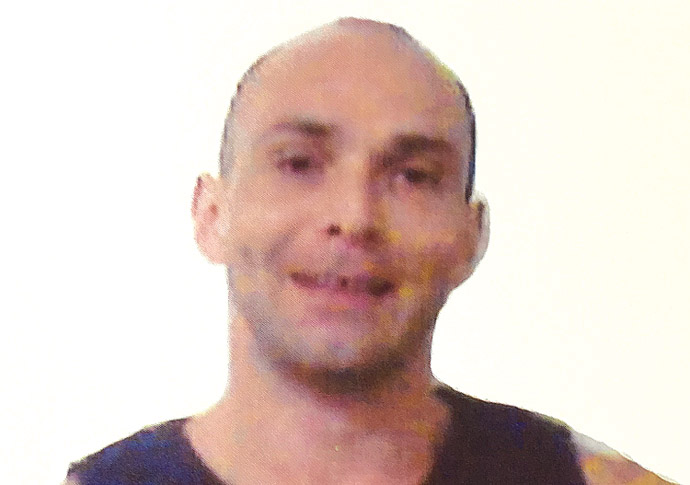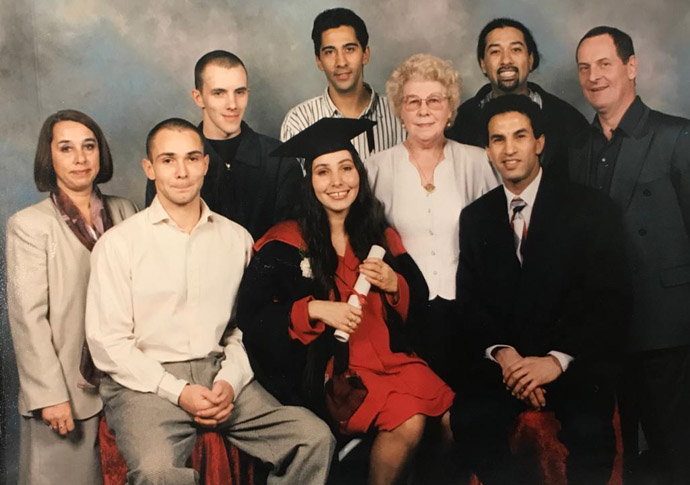Plea to MPs: Don’t throw away the key
Indeterminate sentences ‘rob young boys of their lives and families’
Friday, 25th November 2022 — By Anna Lamche

A recent photograph of Yusuf Ali
CAMPAIGNERS want MPs to end indeterminate prison sentences as they respond to a landmark Justice Committee report on Monday, warning that thousands of inmates are lost in the jail system with no idea when they will ever be released.
The practice of not ruling how long prisoners have to serve was introduced in 2005 but then abolished in 2012. Anybody sentenced during this time are stuck with IPP (Imprisonment for Public Protection) orders.
These include Yusuf Ali, who has spent most of his adult life in prison, and his mother Jacqueline, from Barnsbury, says she fears he will never live in “normal society” again.
Speaking to the Tribune this week, Ms Ali said: “They have to understand the implications of what has been done. These young boys have been robbed of their lives and their families.”
She had Yusuf when she was just 14 – the product of abuse while she was living in Islington’s care homes during what has been described as the “worst chapter” in the borough’s history.
He grew up in care until his mother could look after him independently. As a teenager Yusuf was caught up in a series of crimes including robbing a betting shop with an imitation firearm that eventually saw him put in prison, aged just 19.

Jacqueline Ali’s graduation photo in 1994 – Yusuf is beside her
Now 49, he is still there and has spent over a decade serving an indefinite sentence that sees prisoners held without a release date.
Next week MPs must respond to a report by the Justice Committee which described IPP sentences as “irredeemably flawed” and called on the government to undertake a “large-scale resentencing exercise” to give straightforward sentences to all those currently serving a term under IPP.
Speaking ahead of that debate, Ms Ali said Yusuf has “turned… into a zombie” after losing all hope that he will ever be released.
Ms Ali, who grew up in Barnsbury, said: “They’ve smashed any hope out of him of ever being released – they’ve murdered him, he’s walking dead. The shell of my boy is what’s there. It’s so painful.”
IPP sentences have become known as the “seven-year trap” – due to the window in which they were handed down – or “a life sentence through the backdoor”.
While judges no longer hand down IPP sentences, all those given the sentence before 2012 did not have their jail terms changed retrospectively when the IPP scheme was abolished.
According to the Prison Reform Trust, there are 1,661 people in prison still serving an IPP sentence who have never been released.
In the landmark report by the Justice Committee published in September, the government was urged to “address the unique injustice caused by the IPP sentence” by undertaking a “re-sentencing exercise in relation to all IPP prisoners”.

Fourteen-year-old Jacqueline with an infant Yusuf
Ms Ali said: “Re-sentencing, definitely, that would be great for anyone under IPP. Those convictions should not still be standing.
“All these cases should be looked at again, and they should be looked at independently.”
According to his mother, Yusuf now lives in a state of despair, and has developed a series of complex mental health conditions.
And her son’s sentence has impacted the rest of the family too, Ms Ali added. “It’s the complete dismantling of a family – the destruction of a family,” she said.
“He’s never going to be able to be in normal society,” Ms Ali said of her son. “[IPP prisoners] are going to need support, they’re going to need counselling, they’re going to need training and rehabilitation, and not just on a shoestring. They need to do this on a big scale.”
After being sent to prison as a teenager for the betting shop robbery, Yusuf escaped from custody during a six-year sentence and, according to his mother, “went on the run” for two years.
In the late 1990s, Yusuf handed himself in, and was given a life sentence with a minimum term of five years and seven months in 1999 for a series of crimes including robbery and driving offences.
Yusuf was still in prison in 2008 when he seriously injured another prisoner during a fight. Instead of being sentenced for grievous bodily harm, Yusuf was re-sentenced with an indefinite “Imprisonment for Public Protection” (IPP) jail term with a three-year minimum tariff. He is still in prison to this day.
In his letters to the Tribune, Yusuf described the criminal justice system as “subhumanising”.
“I am trapped in a system,” he wrote. “A decrepit system, completely broke.

Yusuf as a teenager
“[The] system I subsist within [is] a machine of oppression, suppresses any efforts I try to make people outside aware of what is being done to human beings within the prison system.
“People really need to understand the true picture,” he wrote.
While Yusuf’s case has been considered by the Parole Board five times since 2011, he has had several hearings without any form of legal representation.
“Since the government did all the cut-backs, if you’re lucky enough to get legal aid, most solicitors don’t have the time to deep-dive into complex mental health and criminal law cases,” Ms Ali said.
“If I contact 50 solicitors, they’ll come back and say: ‘no, sorry, we can’t take your case.’ That’s happened to me. I’ve gone through the whole list.
“My barrister suggested I try to go pro bono, but nobody was touching it.”
A MoJ spokesperson said: “The number of IPP prisoners has fallen by two-thirds since 2012 and we are continuing to help those still in custody to progress towards release. These sentences were handed down by judges who decided offenders posed a significant risk to the public.
“Under the PCSC Act we have committed to automatically review IPP prisoners’ sentences 10 years after they are first released.”
- Contact IPP Committee in Action for support with IPP sentences